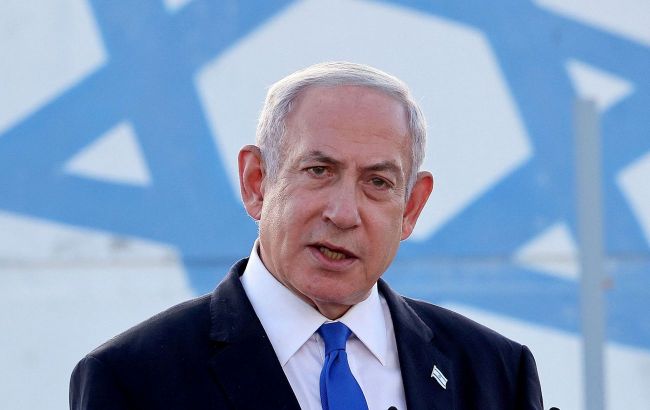Israel and Hamas accuse each other of obstructing ceasefire agreement
 Israeli Prime Minister Benjamin Netanyahu (photo: Getty Images)
Israeli Prime Minister Benjamin Netanyahu (photo: Getty Images)
Israel and Hamas have accused each other of obstructing efforts to reach a ceasefire agreement in the Gaza Strip and secure the release of hostages, according to Bloomberg.
Mediators say that the current round of negotiations has brought both sides closer to a formal pause in hostilities for the first time in months. However, the denials from both sides released on Sunday have increased the likelihood of the situation returning to a deadlock.
"We are conducting negotiations and not a scenario in which we just give and give," Israeli Prime Minister Benjamin Netanyahu stated on Sunday at the start of his cabinet meeting.
"There are things we can be flexible on and there are things that we cannot be flexible on, which we will insist on. We know how to distinguish between the two very well," he emphasized.
Shortly after, the radical Palestinian organization Hamas released a statement detailing new Israeli demands, which the militants claim are obstructing the agreement.
"We hold Netanyahu fully responsible," the statement said.
Course of negotiations
During high-level talks last week in Doha, Israel, and the US worked to narrow differences with officials from Egypt and Qatar, who are acting as mediators for Hamas. Negotiations are set to resume in Cairo later this week, although an official date has not yet been set.
US officials stated that efforts to reach an agreement are approaching the final stage. Israeli negotiators over the weekend expressed cautious optimism to the Prime Minister about the potential for progress on the deal according to an updated American proposal.
This proposal resembles the previous three-stage plan announced in May by US President Joe Biden, which called for a halt to hostilities, a swap of hostages for prisoners, a partial withdrawal of Israeli troops, and the return of Palestinian civilians to northern Gaza.
Earlier, Netanyahu had insisted that the Israeli army remain stationed along the strategic Philadelphia and Netzarim corridors in Gaza to prevent weapons smuggling from Egypt and to block Hamas militants from returning to northern Gaza with civilians. Another contentious issue in the negotiations has been the number of Israeli hostages to be released in the first round of exchanges for Palestinian prisoners.
As a potential sign of flexibility, the Netzarim route, which divides Gaza in half, was not mentioned in Netanyahu’s statement. However, Hamas suggested that Israel is still insisting on a military presence in Netzarim. Additionally, Tel Aviv is reportedly setting new conditions regarding the hostage swap.
In a previous statement on Sunday, Netanyahu accused Hamas of complete stubbornness. He told ministers at today’s cabinet meeting that he is pessimistic about the chances of reaching an agreement on hostage release.
Failure of the previous attempt to reach an agreement
In July, Hamas initially approved the US-backed proposal for a phased ceasefire in the Gaza Strip. The group dropped its key demand that Israel fully end the war.
The first version of the peace plan failed primarily due to Israel's unwillingness to halt hostilities until all Hamas leadership had been eliminated.

